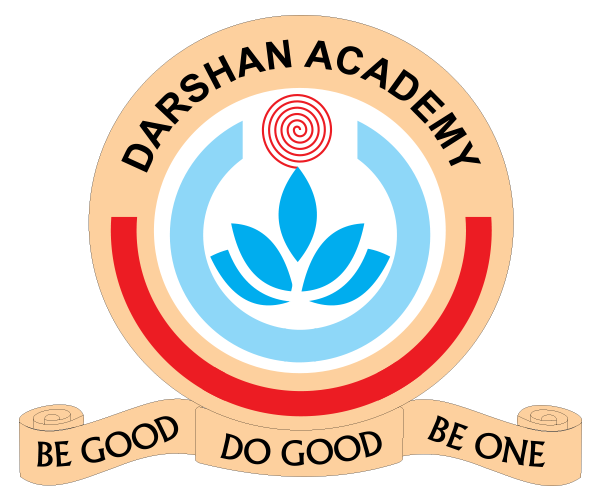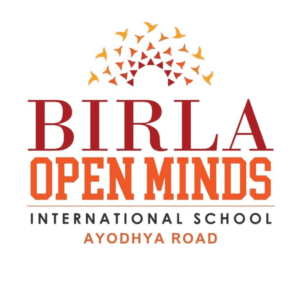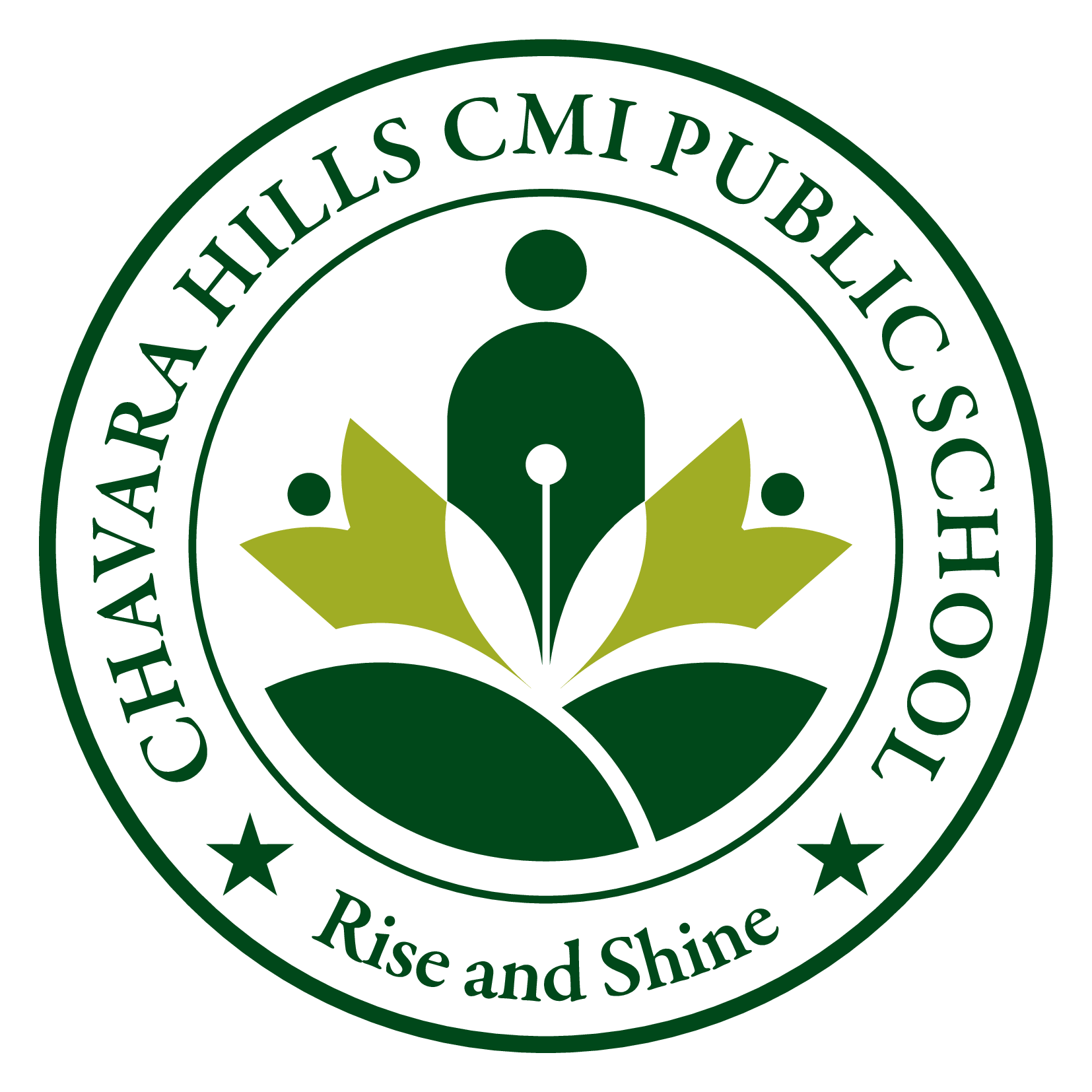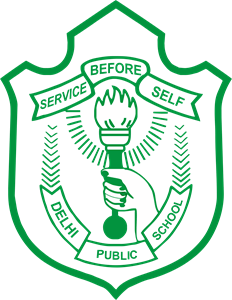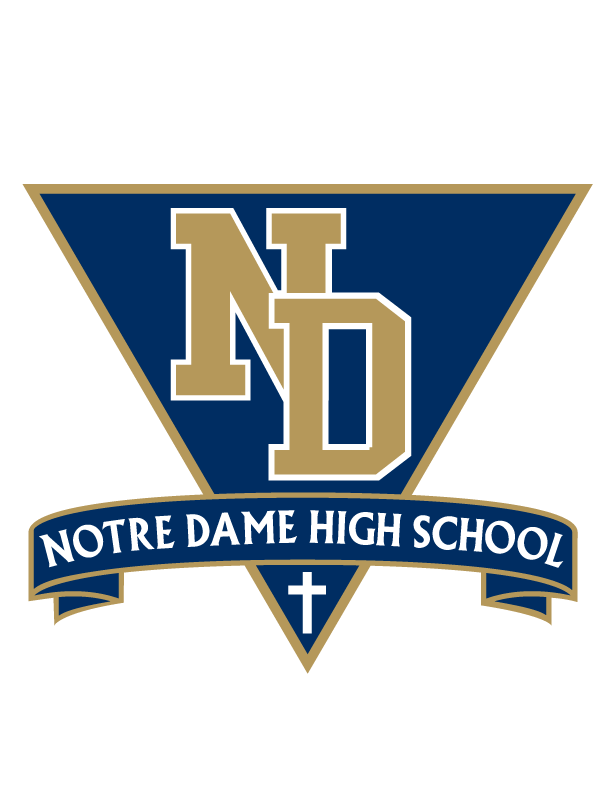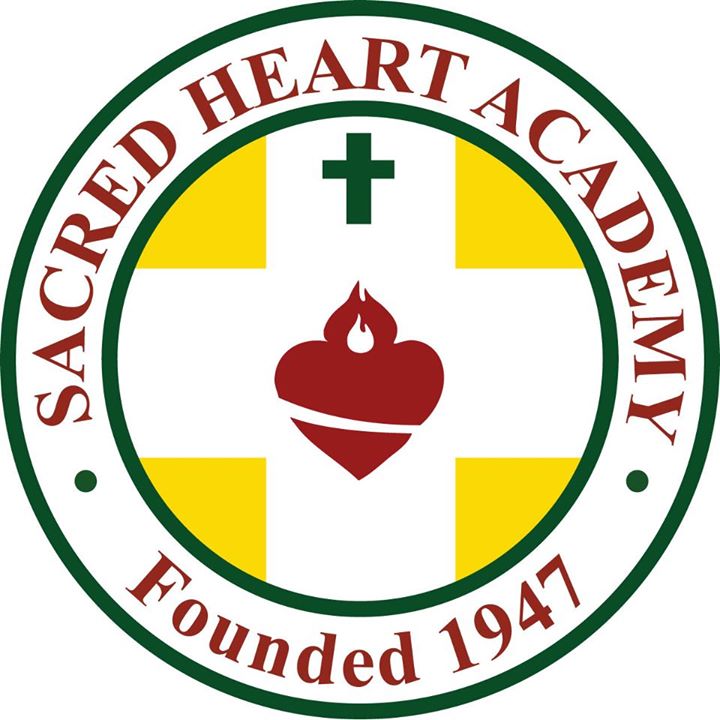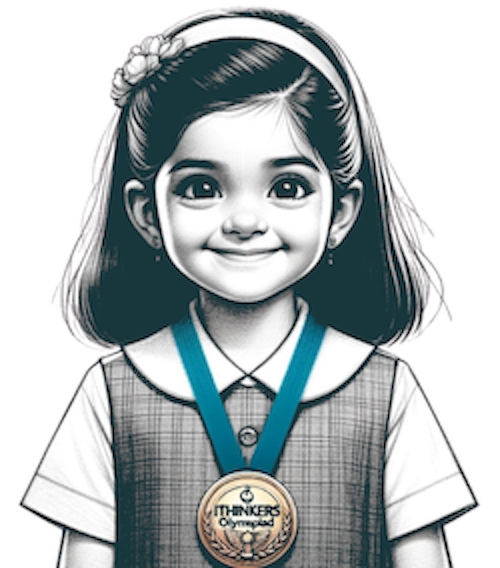Easy implementation
No Parent's Contact Details Required
Approach
Assessment Criteria

Conceptual Understanding
Problem Solving
Knowledge
Application
Analysis
Creativity
Examination Syllabus
Comprehension:
- Simple passages with straightforward questions.
Grammar:
- Nouns, pronouns, verbs (simple present tense)
Vocabulary:
- Basic words related to daily life, animals, colors.
Creative Expression:
- Forming simple sentences, naming objects.
Number Sense:
- Counting numbers, basic addition and subtraction within 20.
Patterns:
- Recognizing simple patterns.
Shapes and Space:
- Basic shapes (circle, square, triangle).
Measurement:
- Basic concepts of length and weight.
Comprehension:
- Slightly longer passages with direct questions.
Grammar:
- Introduction to adjectives, prepositions, simple past tense.
Vocabulary:
- Family, school, body parts, basic adjectives.
Creative Expression:
- Writing very short stories or descriptions.
Number Sense:
- Addition and subtraction up to 100, introduction to multiplication.
Patterns:
- Simple numerical patterns.
Geometry:
- Introduction to 3D shapes, basic spatial understanding.
Measurement:
- Units of length, introduction to time.
Comprehension:
- Short stories or narratives with inferential questions.
Grammar:
- Conjunctions, plurals, simple future tense.
Vocabulary:
- Common adverbs, opposites, and simple synonyms.
Creative Expression:
- Writing short paragraphs on familiar topics.
Number Sense:
- Multiplication and division facts, place value up to thousands.
Fractions:
- Basic understanding of fractions
Geometry:
- Introduction to perimeter.
Measurement:
- Time, money, and standard units of measure.
Our Environment:
- Living and non-living things, basic ecosystem concepts.
Our Body:
- Bones and muscles, senses.
Physical Science:
- Simple machines in more detail, light and shadows.
Comprehension:
- Longer passages, focus on main idea and details.
Grammar:
- Punctuation, compound sentences, continuous tenses.
Vocabulary:
- Homophones, compound words.
Creative Expression:
- Simple essays and letter writing.
Number Sense:
- Place value up to ten thousands, multiplication and division with larger numbers.
Fractions and Decimals:
- Simple operations with fractions and decimals.
Geometry:
- Basic angles, lines, and symmetry.
Measurement:
- Area and its measurement.
Our Environment:
- Soil, rocks, and minerals.
Our Body:
- Digestive and respiratory systems.
Physical Science:
- Basic electricity and magnetism, states of water.
Comprehension:
- Passages with a higher level of inference and prediction.
Grammar:
- Perfect tenses, direct and indirect speech.
Vocabulary:
- Idioms, phrases, contextual vocabulary.
Creative Expression:
- Longer essays, narrative writing.
Number Sense:
- Large numbers, prime numbers, and factors.
Fractions and Decimals:
- Comparing and ordering, simple operations.
Geometry:
- Introduction to circles, angles, and triangles.
Data Handling:
- Basic graphs and data interpretation.
Our Environment:
- Ecosystems and food chains.
Our Body:
- Circulatory and nervous systems.
Physical Science:
- Basic experiments with heat, light, sound, and force.
Understanding Our Environment
- Our environment and its components
- Natural and human-made environment
- Our role in protecting the environment
Our Natural Resources
- Types of natural resources
- Conservation and management of natural resources
- Renewable and non-renewable resources
Food and Agriculture
- Food and its sources
- Different types of crops and their cultivation
- Soil, its composition and conservation
- Pests and their control
Housing and Clothing
- Types of houses and their construction
- Clothes and their types
- Fibres and fabrics
- Traditional and modern technologies in housing and clothing
Transport and Communication
- Modes of transport and their uses
- Communication and its modes
- Means of communication in different parts of India
Our Country
- India's political map and physical features
- India's diversity in languages, religions, and cultures
- SubTIndia's natural heritage and wildlife conservationopic1
व्याकरण (Grammar)
- शब्द ज्ञान: वर्ण, वर्ण-विचार, शब्दों के प्रकार, विराम चिन्ह एवं उनका प्रयोग
- शब्द-पद ज्ञान: समास, उपसर्ग, प्रत्यय, वाक्यांश के अंतर्गत सर्वनाम एवं विशेषण, कारक, संधि, विराम चिह्न एवं उनका प्रयोग
- वाक्य ज्ञान: वाक्य के भेद, वाक्य के अंश, वाक्य विचार
- गद्यांश ज्ञान: निबंध, विज्ञापन, वार्तालाप, संवाद, कहानी, बच्चों के लिए कविताएँ
साहित्य (Literature)
- कविता ज्ञान: रचना, रूपांतर, अभिव्यक्ति
- गद्य ज्ञान: कहानी, नाटक, अनुच्छेद, अनुवाद
व्याकरण से सम्बंधित क्रियाएं (Grammar-related activities)
- अभ्यास पुस्तिका और कार्यपुस्तिका का उपयोग
- अंश-अंश पढ़ाना, जवाब देना, निबंध लेखन
- उच्चारण, शब्दार्थ, शब्द-प्रयोग, भाषा सुधार
Comprehension:
- More complex texts, including non-fiction and poetry.
Grammar:
- More advanced punctuation, modal verbs, relative clauses.
Vocabulary:
- Prefixes, suffixes, more advanced idioms.
Creative Expression:
- Detailed essays, persuasive writing.
Number Sense:
- Integers, prime factorization.
Algebra:
- Introduction to algebraic expressions and simple equations.
Geometry:
- Basic constructions, quadrilaterals.
Data Handling:
- More complex graphs, mean, median, mode.
Biology:
- Basic cell biology, plant and animal kingdoms.
Chemistry:
- Introduction to elements, compounds, and mixtures.
Physics:
- Force and motion, simple laws of physics.
History
- What, Where, How and When?
- From Hunting-Gathering to Growing Food
- In the Earliest Cities
- What Books and Burials Tell Us
- Kingdoms, Kings and an Early Republic
- New Questions and Ideas
- Ashoka, The Emperor Who Gave Up War
- Vital Villages, Thriving Towns
- Traders, Kings and Pilgrims
- New Empires and Kingdoms
- Buildings, Paintings and Books
Geography
- The Earth in the Solar System
- Globe: Latitudes and Longitudes
- Motions of the Earth
- Maps
- Major Domains of the Earth
- Major Landforms of the Earth
- Our Country-India
- India: Climate, Vegetation, and Wildlife
Social and Political Life
- Understanding Diversity
- Diversity and Discrimination
- What is Government?
- Key Elements of a Democratic Government
- Panchayati Raj
- Rural Administration
- Urban Administration
- Rural Livelihoods
- Urban Livelihoods
- Democratic Rights
भाषा
- भाषा का महत्त्व
- भाषा की उत्पत्ति और विकास
- भाषा और समाज
- भाषा विकास में खेलों का महत्व
- भाषा कौशल (शब्दावली, वाक्य रचना, उच्चारण, वर्तनी आदि)
पढ़ने की कला
- पाठों का चयन और उनकी समझ
- निष्कर्ष निकालना
- पाठ से संबंधित सवालों का उत्तर देना
लेखन
- निबंध लेखन
- अनुच्छेद लेखन
- पत्र लेखन
संचार
- संचार के रूपों का विस्तार से विवरण
- ज्ञान विस्तार के लिए संचार का महत्त्व
- संचार के लिए आवश्यक अभिकल्प
Comprehension:
- Analysis of character, setting, and plot in narratives.
Grammar:
- Subjunctive mood, passive voice.
Vocabulary:
- Academic vocabulary, nuanced adjectives and adverbs.
Creative Expression:
- Argumentative essays, creative stories.
Number Sense:
- Rational numbers, operations with integers.
Algebra:
- Linear equations, simplifying expressions.
Geometry:
- Properties of triangles, circles, introduction to 3D shapes.
Data Handling:
- Probability basics.
Biology:
- Plant and animal physiology, adaptation.
Chemistry:
- Acids, bases, and salts, physical and chemical changes.
Physics:
- Heat, light, sound, and their properties.
History:
- Tracing Changes through a Thousand Years
- New Kings and Kingdoms
- The Delhi Sultans
- The Mughal Empire
- Rulers and Buildings
- Towns, Traders, and Craftspersons
- Tribes, Nomads, and Settled Communities
- Devotional Paths to the Divine
- The Making of Regional Cultures
- Eighteenth-Century Political Formations
- The Cultural and Intellectual Awakening
- The Nation in Making
- Our Pasts - III (Part 1)
- How, When, and Where
- From Gathering to Growing Food
- In the Earliest Cities
- What Books and Burials Tell Us
- Kingdoms, Kings and an Early Republic
- New Questions and Ideas
- Ashoka, the Emperor Who Gave Up War
- Our Pasts - III (Part 2)
- Vital Villages, Thriving Towns
- Traders, Kings, and Pilgrims
- New Empires and Kingdoms
- Building, Painting, and Books
Geography:
- Environment
- Environment: Inside Our Earth
- Our Changing Earth
- Air
- Water
- Natural Vegetation and Wildlife
- Human Environment: Settlement, Transport and Communication
- Resources and Development
- Resources
- Land, Soil, Water, Natural Vegetation and Wildlife Resources
- Mineral and Power Resources
- Agriculture
- Industries
- Human Resources
- Human Settlements
Civics:
- Social and Political Life - II
- Diversity and Discrimination
- Government
- Local Government
- Growing up as Boys and Girls
- Women Change the World
- Understanding Media
- Markets Around Us
- A Shirt in the Market
व्याकरण (Grammar)
- वर्ण (Varn)
- शब्द (Shabd)
- संज्ञा (Sangya)
- सर्वनाम (Sarvanam)
- क्रिया (Kriya)
- विशेषण (Visheshan)
- अव्यय (Avyay)
- समास (Samas)
कहानी और उपन्यास (Story and novel)
- एक तीसरा आदमी (Ek Teesra Aadmi)
- अलग समय अलग बातें (Alag Samay Alag Baten)
- साँवले सपनों की याद (Sanwale Sapno Ki Yaad)
लोकगीत (Folk songs)
- फुले अम्बे रानी तेरे ही हम (Phule Ambe Rani Tere Hi Hum)
- हो जायेगा कला देखेगा जमाना (Ho Jayega Kala Dekhega Jamana)
- बुलबुला बोलता है (Bulbula Bolti Hai)
निबंध (Essay)
- मेरा प्रिय खेल (Mera Priya Khel)
- मेरा परिवार (Mera Parivar)
- समय का महत्त्व (Samay Ka Mahatva)
संस्कृति एवं सभ्यता (Culture and Civilization)
- इंटरनेट का महत्त्व (Internet Ka Mahatva)
- संवेदनशीलता (Sampreshan Kshamta)
- भारतीय जनजातियाँ (Bhartiya Janjatiyaan)
Comprehension:
- Critical analysis of texts, identifying themes.
Grammar:
- Complex sentence structures, reported speech.
Vocabulary:
- Analogies, metaphors, and similes.
Creative Expression:
- Analytical essays, detailed narrative writing.
Number Sense:
- Powers and roots, rational numbers.
Algebra:
- More complex linear equations, factorization.
Geometry:
- Understanding theorems related to triangles, circles.
Data Handling:
- More complex probability, pie charts, histograms.
Biology:
- Cell structure and function, microorganisms.
Chemistry:
- Atomic structure, metals, and non-metals.
Physics:
- Basic concepts of pressure and fluids, friction, and energy.
History
- How, When and Where
- From Trade to Territory: The Company Establishes Power
- Ruling the Countryside
- Tribals, Dikus and the Vision of a Golden Age
- When People Rebel: 1857 and After
- Colonialism and the City: The Story of an Imperial Capital
- Weavers, Iron Smelters and Factory Owners
- Civilising the "Native", Educating the Nation
- Women, Caste and Reform
- The Changing World of Visual Arts
- The Making of the National Movement: 1870s-1947
- India After Independence
Geography
- Resources
- Land, Soil, Water, Natural Vegetation and Wildlife Resources
- Mineral and Power Resources
- Agriculture
- Industries
- Human Resources
- Human Settlements
Political Science
- The Indian Constitution
- Understanding Secularism
- Why Do We Need a Parliament?
- Understanding Laws
- Judiciary
- Understanding Our Criminal Justice System
- Understanding Marginalisation
- Confronting Marginalisation
- Public Facilities
- Law and Social Justice
Economics
- The Indian Economy
- People as Resource
- Poverty as a Challenge
- Food Security in India
- Sustainable Development with Equity
व्याकरण
- वाक्य और वाक्य के अंग
- शब्द रूप और उनके भेद
- संज्ञा
- सर्वनाम
- विशेषण
- क्रिया
- अव्यय
- समास
- संधि
कहानी एवं कथा-विवेचन
- कहानी के भेद
- कथा-विवेचन
- कथा लेखन
कविता- विवेचन एवं लेखन
- कविता के भेद
- कविता विवेचन
- कविता लेखन
नाटक एवं नाटकीय रचना- विवेचन एवं लेखन
- नाटक के भेद
- नाटक विवेचन
- नाटक लेखन
अनुच्छेद एवं लेखन
- अनुच्छेद
- लेखन
अपठित गद्यांश और पद्यांश
- अपठित गद्यांश और पद्यांश विवेचन
साहित्य सम्बंधी विषयों पर चर्चा
- भारतीय संस्कृति और साहित्य
- समाज और साहित्य
- नारी और साहित्य
- प्रेम और साहित्य
- विज्ञान और साहित्य
- स्वतंत्रता संग्राम और साहित्य
- विविध
Comprehension:
- Advanced texts with abstract themes, critical analysis.
Grammar:
- Advanced grammar, clause analysis.
Vocabulary:
- SAT-level vocabulary, nuanced expressions.
Creative Expression:
- Sophisticated essay structures, editorial writing.
Number Sense:
- Surds and indices, rationalization.
Algebra:
- Quadratic equations, arithmetic progression.
Geometry:
- Coordinate geometry, basics of trigonometry.
Data Handling:
- Advanced statistics, probability.
Biology:
- Fundamental units of life, tissues, diversity in living organisms.
Chemistry:
- Matter and its nature, atomic structure, chemical bonding.
Physics:
- Motion, laws of motion, gravitation, work, and energy.
History:
- India and the Contemporary World - I
- The French Revolution
- Socialism in Europe and the Russian Revolution
- Nazism and the Rise of Hitler
- Colonialism and the Indian National Movement
- Contemporary India - I
- India: Size and Location
- Physical Features of India
- Drainage
- Climate
- Natural Vegetation and Wildlife
- Population
Geography:
- Contemporary India - I (Part 2)
- Agriculture
- Minerals and Energy Resources
- Manufacturing Industries
- Lifelines of National Economy
- India and the Contemporary World - I (Part 2)
- Print Culture and the Modern World
Political Science:
- Democratic Politics - I
- What is Democracy? Why Democracy?
- Constitutional Design
- Electoral Politics
- Working of Institutions
- Democratic Rights
Economics:
- Understanding Economic Development
- The Story of Village Palampur
- People as Resource
- Poverty as a Challenge
- Food Security in India
Part 1:
- दो बैलों की कथा
- ल्हासा की ओर
- तुम कब जाओगे, अतुल्कृष्ट भारतीय वैज्ञानिक
- देव और दानव
- शब्द आश्रय के आधार पर व्याकरण का अध्ययन
- संज्ञा
Part 2:
- मेरे बचपन के दिन
- भारत में बाल श्रम का परिचय
- रहीम के दोहे
- जूझ
- काले मेघा पानी दे
- सर्वनाम
Comprehension:
- Complex and diverse texts, including classical literature.
Grammar:
- Mastery of all grammatical concepts.
Vocabulary:
- Advanced and nuanced vocabulary, technical terms.
Creative Expression:
- Mature narrative techniques, persuasive and argumentative writing.
Number Sense:
- Real numbers, sets.
Algebra:
- Quadratic equations, arithmetic and geometric progressions.
Geometry:
- Circles, constructions, trigonometry.
Data Handling and Mensuration:
- Surface areas and volumes, advanced statistical concepts.
Biology:
- Life processes, control and coordination, reproduction, heredity, and evolution.
Chemistry:
- Chemical reactions and equations, acids, bases, and salts, periodic classification of elements, carbon compounds.
Physics:
- Electricity, magnetic effects of electric current, sources of energy, light reflection and refraction.
History
- The Rise of Nationalism in Europe
- The Nationalist Movement in Indo-China
- Nationalism in India
- The Making of a Global World
- The Age of Industrialisation
- Print Culture and the Modern World
Geography
- Resources and Development
- Forest and Wildlife Resources
- Water Resources
- Agriculture
- Minerals and Energy Resources
- Manufacturing Industries
- Lifelines of National Economy
Political Science
- Power Sharing
- Federalism
- Democracy and Diversity
- Gender, Religion and Caste
- Popular Struggles and Movements
- Political Parties
- Outcomes of Democracy
- Challenges to Democracy
Economics
- Development
- Sectors of the Indian Economy
- Money and Credit
- Globalisation and the Indian Economy
- Consumer Rights
बचपन
- चंद्र गुप्त मौर्य
- बिहार के अनुपम जीवन
- तताँरा-वामीर श्रृंखला से चयनित कथाएँ
- संघर्ष के कुछ पहलू
संदेह कार्यकलाप
- मीठा जीवन
- कबीर की साखियाँ एवं दोहे
- माता का आँचल
- सही का फूल
- सपनों के-से दिन
नयी शरुआत
- यह दंतुरहित मुस्कान
- एक कहानी यह भी
- पानी की कहानी
- कर चले हम फिदा
- बादल राग
संस्कृति और समाज
- दोहे
- अन्य संस्कृतियों से कुछ अंश
- कुछ स्वतंत्रता संग्राम के दृश्य
- कविता का निर्माण
- नाटकों से अध्ययन
Note: To align with NEP (2020), NCF (2022), NCERT and CBSE guidelines, and various National and State Boards, we will ensure that any changes or reductions in the syllabi will be accurately reflected in the corresponding question papers for the convenience of schools and students.
Examination Details
Subject, Class and National Test Dates
Registration started for 2025 Olympiad
English
Class 1st to 10th
Mid-Year Round: 21st to 25th July 2025
End-Year Round: 24th to 28th November 2025
Mathematics
Class 1st to 10th
Mid-Year Round: 21st to 25th July 2025
End-Year Round: 24th to 28th November 2025
Science
Class 3rd to 10th
Mid-Year Round: 21st to 25th July 2025
End-Year Round: 24th to 28th November 2025
GK & Mental Ability
Class 3rd to 10th
Mid-Year Round: 21st to 25th July 2025
End-Year Round: 24th to 28th November 2025
Hindi
Class 5th to 8th
Mid-Year Round: 21st to 25th July 2025
End-Year Round: 24th to 28th November 2025
Social Studies
Class 5th to 8th
Mid-Year Round: 21st to 25th July 2025
End-Year Round: 24th to 28th November 2025
Exam Fee
Check Fee Details and Discounts
Any One Subject
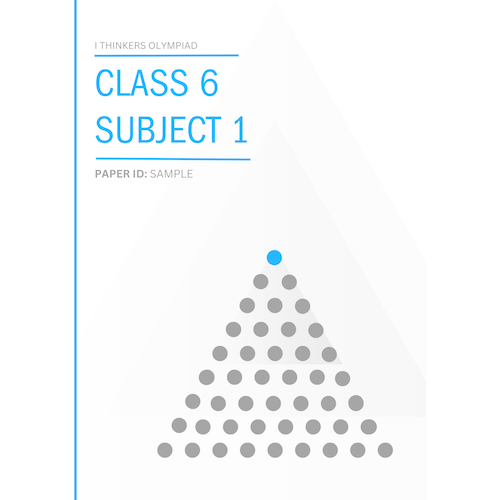
- $9 for Other Countries
- Fee is inclusive of GST
English, Maths & Science
Combo
- ₹ 600/-
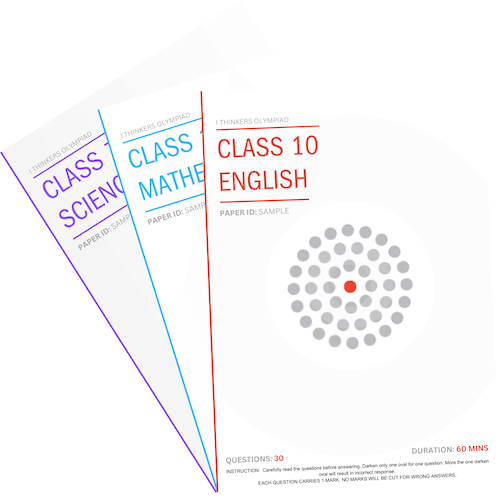
- $24 for Other Countries
- Fee is inclusive of GST
F.A.Q
Frequently Asked Questions
To align with NEP (2020), NCF (2022), NCERT and CBSE guidelines, and various National and State Boards, we will ensure that any changes or reductions in the syllabi will be accurately reflected in the corresponding question papers for the convenience of schools and students.
Contact
Contact Us
Call Us
+91 9266766901
+91 9266766902
+91 9266766903
+91 9266766904
Email Us
support@ithinkersolympiad.com
Address
1929, Tower A, EON, Sec 140A, Noida, U.P. - 201305, India




